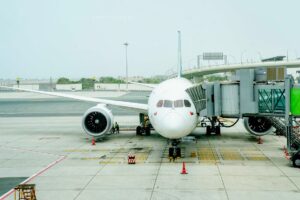As Africa looks toward a future of unity, prosperity, and self-reliance, one critical pillar that will ensure its success is security. The vision of a United States of Africa can only be realized if the continent is able to protect itself from both external and internal threats. In this context, building a strong, self-sufficient defense industry becomes not just an aspiration but a necessity. This post outlines a comprehensive approach to protecting the Motherland — from developing indigenous military capabilities to ensuring the safety and security of African communities from all forms of threats.
Foreign Threats: Establishing a Unified Defense System
Africa, with its vast resources and growing influence, cannot afford to remain vulnerable to external aggression. The establishment of a self-sustaining defense industry capable of manufacturing high-grade weapons and ammunition will be vital for the protection of the continent. This industry will ensure that African nations can defend themselves without relying on foreign suppliers who may have their own political interests.
One key initiative will be the development of the six branches of the Motherland Defense System:
The African Air Force
An elite air force will be developed to secure the skies over Africa. By investing in modern aircraft and developing cutting-edge aviation technologies, the African Air Force will ensure that Africa’s sovereignty is never compromised by foreign powers.
Example: South Africa has already made strides in this direction with its Denel defense conglomerate, which produces advanced air defense systems and artillery. If expanded and unified across the continent, African nations could achieve similar self-sufficiency.
The African Navy
With Africa’s extensive coastlines, a strong naval presence is essential for safeguarding its territorial waters and ensuring the security of critical sea lanes. The African Navy would be tasked with protecting Africa’s maritime interests, including its ports and trade routes.
Example: Nigeria, with its Nigerian Navy, has already recognized the importance of maritime security. However, a pan-African navy could dramatically improve the security of the entire continent’s maritime space, particularly in combating piracy, illegal fishing, and human trafficking.
The African FireWall
In an increasingly digital world, cyber threats are just as dangerous as physical attacks. The African FireWall will be responsible for securing Africa’s digital infrastructure from both foreign and domestic threats.
Example: Estonia has set a global benchmark in cybersecurity by developing a robust cyber-defense infrastructure. Inspired by such success stories, Africa could create a unified cybersecurity force to protect critical sectors like finance, government services, and healthcare.
The African Motherland Army
The Motherland Army will serve as the backbone of Africa’s defense system, maintaining peace and stability across the continent. It will be tasked with responding to external military threats as well as supporting peacekeeping missions in conflict zones within Africa.
Example: The African Union (AU)’s African Standby Force is a positive example of collective military cooperation within the continent. A full-scale, operational African Motherland Army would enhance Africa’s capacity to respond to security challenges.
The People’s Army
This is a militia-style force composed of citizens, offering a civilian-based layer of defense against external or internal threats. This army will emphasize the importance of national pride, unity, and self-reliance.
Example: Switzerland has a longstanding tradition of a citizen-based army, where every Swiss citizen is required to undergo military training and be available for defense in times of need. Africa could create a similar model where every citizen plays an active role in the nation’s defense.
The Army Engineering Unit
This specialized unit will focus on infrastructure protection, disaster relief, and the creation of military and civilian infrastructure projects. It will also oversee the development of defense technology and weapons.
Example: The Israel Defense Forces (IDF) are renowned for their innovation in defense technology and infrastructure, often applying engineering skills to both military and civilian needs. Africa could follow suit by creating a unit capable of improving both its military and civilian infrastructure.
Each of these branches will have its own training academies and governing bodies, ensuring that they operate efficiently, stay up to date with technological advancements, and remain accountable to the African people.
Domestic Threats: Building Trust and Ensuring Community Safety
While protecting the continent from external threats is essential, ensuring safety from domestic threats—such as corruption, crime, and civil unrest—is equally important. A key to this is the creation of a police force free from corruption that guarantees the integrity of the social contract between the state and its citizens.
Key elements of this domestic security plan include:
- Installation of cameras on major streets to monitor and deter criminal activities.
- Body cameras for officers, ensuring transparency and accountability during interactions with the public.
- A ban on police handling monetary transactions during field duties, eliminating opportunities for corruption.
- Citizen right to film police interventions as long as it does not interfere with the duties of officers or endanger anyone’s life.
- Community policing, working closely with neighborhood watch organizations to create safer environments in both cities and rural areas.
Example: Rwanda has made notable progress in building trust between the police and the people. Through initiatives like community policing, Rwanda has managed to reduce crime rates and foster greater cooperation between law enforcement and local communities. These models can serve as a guide for creating a corruption-free and transparent police force across the continent.
Cybersecurity: Building the African FireWall
In the digital age, Africa must invest in securing its cyberspace. The African FireWall will be an elite cybersecurity agency dedicated to protecting the continent’s digital infrastructure from foreign and domestic threats.
This agency will train cybersecurity engineers to safeguard critical networks, develop and implement security protocols, and ensure that African systems are resilient against hacking, cyber espionage, and digital warfare. Additionally, the agency will create and sell cybersecurity solutions for civil use, generating revenue to support its operations.
Example: Singapore has invested heavily in cybersecurity, building a national framework that secures both public and private digital infrastructure. With the growing reliance on digital systems, Africa can benefit from establishing a cybersecurity agency that ensures the continent’s digital economy remains secure and resilient.
A Vision for the Future: A Secure and Self-Reliant Africa
The future of a United States of Africa lies in its ability to protect itself from all threats, both foreign and domestic. By establishing a comprehensive Defense Industry, including air, sea, land, and cyber defense capabilities, Africa can take charge of its own security. Equally important is ensuring that domestic safety is guaranteed through a corruption-free police force and community-based security initiatives.
Incorporating lessons from countries that have successfully built robust defense systems, such as Israel, Singapore, and Rwanda, Africa can develop a model that is tailored to its unique needs and circumstances.
A unified Africa will not only be strong economically and politically but will also be a beacon of security and stability on the world stage. By investing in defense capabilities and community safety, Africa can create a secure environment where its people can thrive, and where the continent’s potential is fully realized.
In the end, the Motherland’s defense is not only about weapons and security forces but also about creating a culture of protection, unity, and self-reliance that will safeguard Africa’s future for generations to come.




